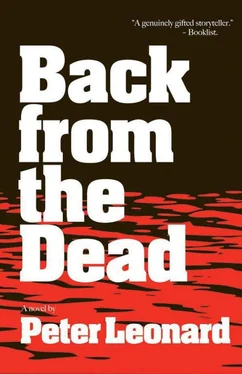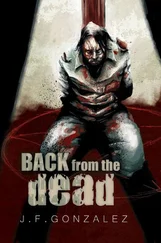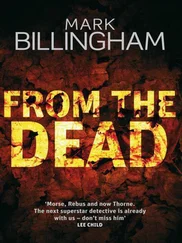Hess had obviously been in contact with Stigler, told him to follow her. And although Hess was a wanted criminal, he evidently still held sway with the Blackshirts. Stigler looked to be alone although the rear of the van could have been filled with armed thugs.
Colette was leaving and wouldn’t be back for a while. She didn’t know what to do with the Van Gogh, couldn’t take it with her, so she hid it in her bedroom closet. Packed a bag and carried it to the front door.
She went into the kitchen, opened a drawer and took out a cook’s knife, touched the sharp edge with her thumb and sheathed the knife in a deep side pocket of her overcoat.
Colette walked out of her apartment, carried the suitcase down to her car, which was parked behind Stigler’s van. She could see his face in the van’s side mirror, watching her. She opened the car door, folded the seat forward against the steering wheel, lifted the suitcase in the backseat and pulled the front seat into the driving position. She kept the door open and moved toward Stigler’s van, crouched next to the rear wheel and drove the cook’s knife into the tire. There was a whoosh of air as the tire deflated, rubber resting on wheel rim.
The driver’s door flew open. Stigler came charging. “What are you doing?”
Colette ran back to her car, got in, closed the door and locked it as Stigler, in a rage, banged on the window, yanked on the door handle. But Colette was already rolling, Stigler running next to the car, and then he was in the rearview mirror, receding fast.
Colette had received Anke Kruger’s address from Gunter at Der Spiegel. Anke’s relationship with Ernst Hess had raised her profile in the tabloid press. Colette waited in front of Anke’s apartment building and hoped she wasn’t as obvious as Franz Stigler, or she would never get the information she needed.
She had been waiting for a couple hours when a taxi drove up to the apartment building. Leggy Anke got out with two shopping bags. Colette raced across the street and intercepted her on the sidewalk. “Anke.”
She was taller than Colette and prettier, long blonde hair and high cheekbones.
“Do I know you?”
“My name is Colette Rizik.”
“You’re the journalist. You have a lot of nerve coming here. I have nothing to say to you.” Anke moved away from Colette as if she had been rigged with high explosives.
“Ernst Hess stole paintings during the war,” Colette said, following her to the door.
“I am going to call the police.”
“No you’re not,” Colette said. “You don’t want to get involved, have your picture in the paper for helping a war criminal.”
“I’m not helping Ernst. I haven’t seen or talked to him for weeks.”
“Tell me what you know.”
Anke unlocked the door, pushed it open with her hip and shoulder, glanced back at Colette and said, “Okay, you can come in.”
The apartment building was big and solid, pre-war, old-world. It had six floors. Anke’s apartment was a corner unit on the fifth. They sat in trim black leather chairs in the salon, Anke clearly uneasy, meeting with the enemy, obvious tension between them.
“I don’t believe what you wrote about him.”
“You think I made it up? All of the facts are documented. Hess is a murderer.”
“Ernst is a good man, kind and generous.”
“Tell that to the six hundred Jews he murdered.” That seemed to take the wind out of her protests. “The photos from the article are from Hess’ apartment. His mementos. Can you imagine murdering innocent people and keeping photos to relive the memory?”
“You don’t know that.”
“There are two witnesses, survivors who were there.”
“I still don’t believe it.”
“Well you’re the only one who doesn’t.” She brought a photo of the painting out of her bag and handed it to Anke. Colette had gone to the library and verified that it was a Van Gogh titled The Painter on the Road to Tarascon. “What do you know about this?”
Anke studied the image. “Nothing.” And handed it back to Colette. “I’ve never seen it before.”
“Hess must have stolen it during the war.”
“How do you know it belongs to Ernst? The Nazis confiscated thousands of paintings and works of art from occupied countries.”
“Where are the other paintings?”
“I only know about one. It was a Durer Ernst sold to an art broker in New York City. I was with him.”
“Who’s the broker?”
“I can’t remember his name. He had a gallery on Park Avenue.”
“Did Hess say where he got it?”
“No, and I didn’t ask. There was no reason to. Ernst is wealthy.”
“Did you travel with him?”
“What do you mean?”
“Where did he take you?”
“A lot of places. Paris, Berlin, Vienna, Gstaad, and one time, a villa in Nice.”
Neither Colette nor her colleagues at Der Spiegel had been able to find any record that Hess owned property other than the apartment in Munich and the estate in Schleissheim. “Where is the villa?”
“In the hills northwest of the city. It was owned by someone else.”
“Do you remember the address?”
“No. Ernst brought me there one time years ago.”
“Did Hess mention the name of the owner?”
“I think it was Victor.” Anke paused, thinking. “No, not Victor. Vincent. Vincent Chartier.”
“Did you meet him?”
“No. I saw the name on a bill for electricity or water, I don’t remember. I said, ‘Ernst, who is Vincent Chartier?’ And he said, ‘The man who owns the villa.’ And I said, ‘How do you know him?’ He said, ‘Monsieur Chartier is a friend.’”
“And that was it? You never discussed it again?”
“There was no reason to.”
“Does Ernst Hess speak French?”
“Yes, fluently.”
“Can you give us a minute?” Harry asked the nurse, a 250-pound black woman who wasn’t happy to see him in Joyce’s room, even though Conlin had cleared it with the hospital.
“You a relative?”
“Yeah,” Harry said. After all they’d been through together he felt related to her.
“Okay, but be quick. This patient needs her bed rest.” The nurse gave Harry a dirty look and walked out of the room.
“Harry, it was Hess,” Joyce said in a tiny voice that was barely audible next to the whooshing, thumping machines behind her bed.
Harry held her hand. “You saw him?”
“And I got his license number.” She whispered it and Harry said it back to her and she tried to nod.
“Did you tell the police?”
“I don’t think so,” Joyce said, lids heavy, eyes glazed. She was drugged, out of it. “Harry, I’m afraid. Hess is going to find out I’m still alive. He’s going to come back and finish me.”
“The Nazis couldn’t kill you in the woods that day outside Dachau, and Hess couldn’t do it last night.”
“I’ve used up two lives at least. How many more do I get?”
“As many as you need. Don’t worry. The police are taking this seriously. There’ll be a cop outside your door twenty four-hours a day.”
“Harry, you always make me feel better. What are you going to do?”
“Get out of here before that nurse comes back and beats me up.”
Conlin had phoned his hotel room, woke him up at 6:15, told Harry what had happened. Joyce was in critical but stable condition, lucky to be alive.
Now, they were down the hall in an empty hospital waiting room. Conlin said, “If it’s the same guy, and we think it is, he’s popped seven. Two inches to the left, Ms. Cantor would’ve been eight. I’ve got to believe you’re on his short list along with the colored guy.” Conlin paused, holding Harry in his gaze. “We know he’s not an auto-parts salesman named Gerd Klaus. Who is he?”
Читать дальше












